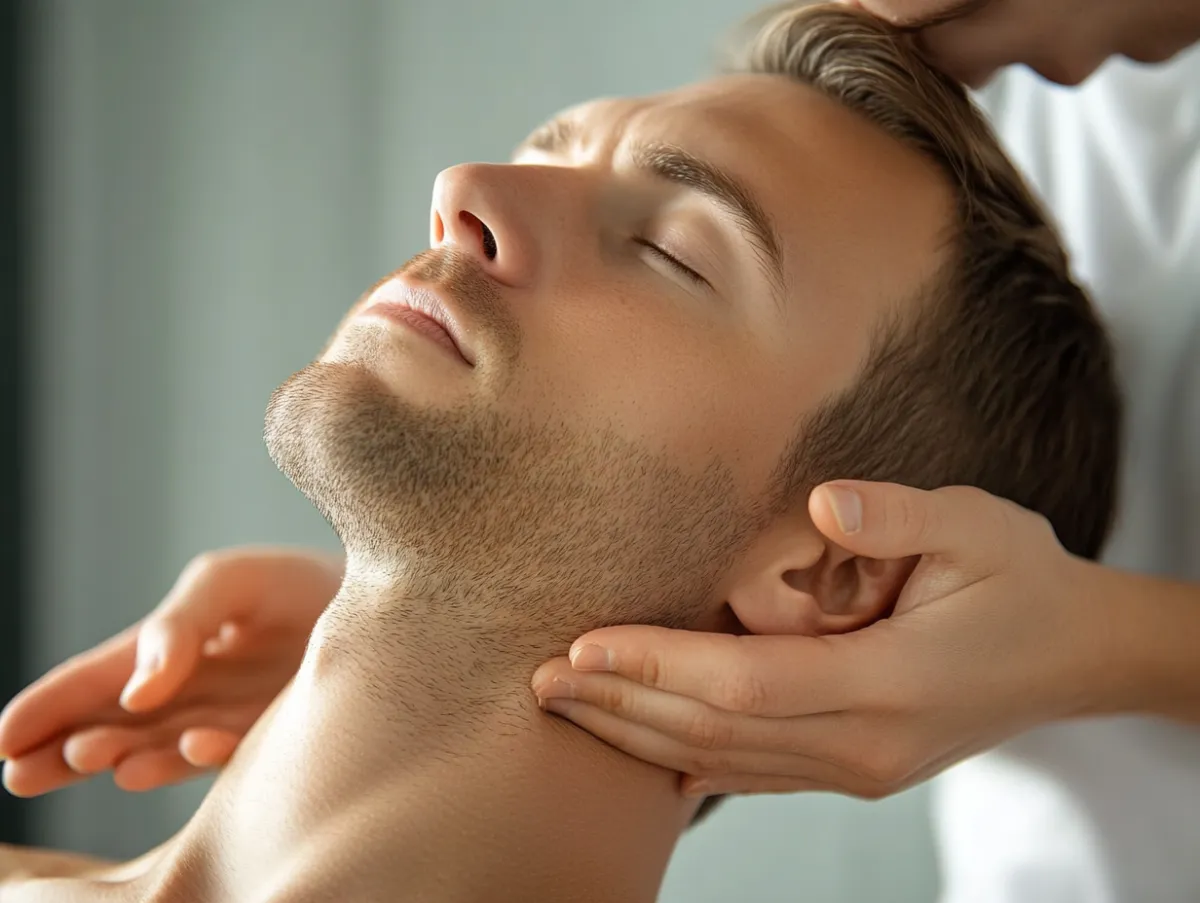
Need Myofunctional Therapy? Discover Key Signs Now
How to tell if you need Myofunctional Therapy?
Myofunctional therapy is a specialized treatment that focuses on improving the function and coordination of the muscles in the face, mouth, and throat. This type of therapy can address a variety of issues, from breathing and swallowing difficulties to speech irregularities and dental problems.
At its core, myofunctional therapy aims to retrain the muscles to function optimally, ensuring that everyday tasks such as eating, speaking, and breathing are performed correctly. It involves a series of exercises and habit changes that encourage proper muscle function and alignment.
You might wonder why myofunctional therapy is important. Improper muscle function can lead to a cascade of problems, including sleep apnea, chronic headaches, and orthodontic issues. By addressing the root cause, myofunctional therapy can provide long-term relief and improved overall health.
One of the key benefits of myofunctional therapy is its holistic approach. Instead of focusing on symptoms, it targets the underlying muscle dysfunction. This can lead to dramatic improvements in quality of life, including better sleep, clearer speech, and overall enhanced physical health.
For many, myofunctional therapy can be a transformative experience. With consistent practice and guidance from a trained therapist, individuals can see significant improvements in their muscle function and overall well-being.
If you suspect that muscle dysfunction is affecting your health, exploring myofunctional therapy could be a crucial step toward better living.
Common Symptoms Indicating the Need for Myofunctional Therapy
If you're dealing with a range of issues that seem unrelated at first glance, you might be surprised to learn they could be clues pointing to the need for myofunctional therapy. Here are some common symptoms that can signal this need.
Snoring and Sleep Apnea
If you or a loved one snores loudly or struggles with sleep apnea, these might be signs that your tongue and throat muscles aren't functioning properly. Myofunctional therapy can help strengthen these muscles, potentially reducing or eliminating these common sleep disruptors.
Mouth Breathing
Consistently breathing through your mouth instead of your nose can lead to a range of health issues, including dry mouth, bad breath, and even more severe conditions like obstructive sleep apnea. If you find it hard to breathe through your nose, myofunctional therapy might be the solution.
Speech Issues
Difficulty with articulation, a lisp, or other speech problems can sometimes be traced back to improper tongue positioning or weak oral muscles. By focusing on these specific areas, myofunctional therapy can help you correct these speech difficulties.
Dental Problems
Frequent cavities, gum disease, or a misaligned bite can also hint at an underlying need for myofunctional therapy. Improper tongue placement and mouth muscle usage can exacerbate or even cause these dental problems.
Swallowing Process Difficulties
If swallowing feels like a chore, this can be a red flag. Difficulty swallowing, or "dysphagia," can sometimes be improved through targeted exercises in myofunctional therapy that aim to strengthen the relevant muscles.
Facial Pain and Headaches
Chronic facial pain, jaw pain, or headaches could mean that your muscles are overworking due to improper function. Myofunctional therapy can help alleviate these pains by targeting and strengthening the appropriate muscle groups.
By paying attention to these common symptoms, you can better understand whether myofunctional therapy might be a helpful treatment for you. Always consult with a healthcare professional for a proper diagnosis and treatment plan.
Detailed Conditions That Can Benefit from Myofunctional Therapy
Myofunctional therapy might sound like a specialized field, but it’s essentially about maintaining a healthy function of the muscles in your mouth and face. Several conditions can benefit greatly from this type of treatment, improving both health and quality of life.
One common condition treated with myofunctional therapy is sleep apnea, which disrupts breathing during sleep. Proper muscle function can help keep the airway open, reducing interruptions and improving sleep quality.
Additionally, snoring, often a precursor to sleep apnea, can be mitigated through targeted muscle exercises.
Tongue thrusting is another condition where myofunctional therapy can be immensely helpful. This is when the tongue pushes against the teeth during swallowing, speaking, or at rest, potentially leading to misaligned teeth and speech disorders. Correcting tongue posture and function can prevent these issues.
Mouth breathing is habitually breathing through the mouth instead of the nose. Myofunctional therapy helps patients learn to breathe through their nose, which is healthier and can reduce the likelihood of chronic dry mouth, bad breath, and other oral health issues.
For individuals with temporomandibular joint (TMJ) disorders, therapy exercises can alleviate pain and improve jaw function. Similarly, those with orthodontic problems can benefit, as myofunctional therapy can enhance and maintain the outcomes of orthodontic treatments by correcting detrimental oral habits.
Children with speech and swallowing disorders also find myofunctional therapy beneficial. Exercises can improve muscle coordination and lead to better speech clarity and safer swallowing patterns.
By addressing these conditions, myofunctional therapy offers a holistic approach to improving oral health and overall well-being. If you suspect any of these issues are impacting your life, considering myofunctional therapy could be a step towards better health.
Assessment Process: How to Determine If You’re a Good Candidate
Determining whether you need myofunctional therapy starts with a thorough assessment. The process typically involves both self-evaluation and professional diagnosis. Here's how you can start:
Self-Evaluation
Notice Your Breathing Patterns: If you often breathe through your mouth rather than your nose, it might be a sign. Mouth breathing can lead to improper tongue placement and affect your oral muscles.
Observe Your Tongue Posture: Your tongue should rest against the roof of your mouth when you’re not talking or eating. If it stays flat or lies against your teeth, this might indicate a need for therapy.
Check Your Swallowing Technique: If you frequently use your facial muscles or notice lip strain while swallowing, it can be an indicator of muscle weakness or poor coordination in your oral region.
Be Aware of Sleep Issues: Frequent snoring, sleep apnea, or waking up with a dry mouth might also point to underlying myofunctional problems.
Professional Diagnosis
Once you've noticed these signs, consulting a myofunctional therapist or specialist is the logical next step. Here’s what typically happens:
Initial Consultation: You’ll discuss your symptoms, medical history, and any concerns you may have. The therapist will ask about your daily habits, sleep patterns, and any difficulties you face with eating or speaking.
Physical Examination: The therapist will examine your oral posture, tongue placement, and swallowing technique. They might also evaluate your dental alignment and facial muscle function.
Diagnostic Tools: Sometimes, the therapist may use specific diagnostic tools, such as imaging studies or sleep studies, to get a comprehensive view of your condition.
Following this assessment, if you’re found to be a good candidate, the therapist will develop a personalized treatment plan for you. By targeting the root causes, myofunctional therapy can significantly improve your quality of life.
Benefits of Undergoing Myofunctional Therapy
Undergoing myofunctional therapy offers numerous benefits that can significantly improve your overall well-being. This type of therapy focuses on strengthening the muscles of the mouth, face, and throat, which can lead to enhanced breathing, swallowing action, and even posture.
One immediate benefit is better sleep quality. By addressing issues like mouth breathing and sleep apnea, myofunctional therapy can help you achieve more restful nights, reducing daytime fatigue and boosting your energy levels.
Improved oral health is another key advantage. Proper tongue and mouth posture can prevent the development of dental issues like misaligned teeth and gum disease. In children, it can support healthier dental growth and alignment, potentially reducing the need for braces later on.
Speech improvement is also a common outcome. Strengthening the muscles involved in articulation can correct speech impediments, making communication clearer and more effective. This is particularly beneficial for children who are developing their speech patterns and for adults who may have speech issues from muscle weakness or poor oral habits.
Digestive health can also improve because myofunctional therapy teaches proper chewing and swallowing techniques. This ensures food is adequately broken down before it reaches your stomach, making digestion smoother and reducing issues like acid reflux.
The therapy is a natural, non-invasive approach. Unlike surgeries or long-term medication regimens, myofunctional therapy offers a holistic solution with minimal side effects. It seamlessly integrates into daily routines, requiring simple exercises that can be done at home.
Investing time in myofunctional therapy can lead to a cascade of positive changes, enhancing your quality of life both immediately and in the long term.
Integrating Myofunctional Therapy with Other Treatments
Myofunctional therapy can be even more effective when combined with other treatments. Often, addressing the root causes of various health issues requires a multi-faceted approach. For instance, myofunctional therapy can complement orthodontic treatment.
By improving tongue posture and establishing proper breathing habits, it can help stabilize orthodontic results, making them long-lasting.
Additionally, those dealing with sleep apnea may find that combining myofunctional therapy with the use of a CPAP machine or other sleep aids can enhance the overall effectiveness of their treatment.
Strengthening the muscles involved in breathing can make these aids more efficient, improving sleep quality and reducing symptoms.
Pediatric patients undergoing speech therapy can also benefit. Myofunctional therapy can address underlying muscle dysfunctions, paving the way for more effective speech interventions.
Similarly, if you’re working with a physical therapist to correct posture or dealing with TMJ issues, integrating myofunctional therapy can optimize muscle function and alignment, resulting in quicker, more comprehensive recovery.
Dental professionals often recommend myofunctional therapy in tandem with other oral health treatments. It can aid in reducing bruxism (teeth grinding) and developing better oral habits, enhancing overall dental health.
To ensure seamless integration, it’s crucial for your healthcare providers to communicate effectively. A collaborative approach allows each specialist to understand how myofunctional therapy aligns with other treatments, ensuring a coordinated strategy tailored to your unique needs.
This integrated care approach can significantly boost the success of your overall treatment plan, providing you with more sustainable health benefits.
Integrating myofunctional therapy with other treatments isn't just about adding another layer of care; it's about creating a holistic, synergistic plan that enhances your well-being on multiple fronts.

